Desperate to Deep Fry
When I received this question from Brenda who was having trouble frying chicken tenders for her kids, I asked a few of my chef friends, who brilliantly responded with ideas and suggestions.
Brenda wrote,
I need some pointers on frying…I’ve been cooking for years and recently have had problems with the grease foaming up when I deep fry meats. I’m using Canola Oil…and a wok. I flour and season the chicken, dip it in egg, then into Japanese breadcrumbs, then put it right into the hot oil. Then, all of a sudden, it foams up and wants to overflow!!!
This has never happened before, and nothing has changed; I’ve been doing it this way for years. HELP! I’m getting to the point where I don’t want to deep-fry anything anymore! My kids MISS my Chicken Tenders, and I know they’re much healthier than the ones in restaurants and would like to make them again…but I’m “reluctant.”
HELP ME OUT, PLEASE!!!
Desperate To Deep Fry, VA.
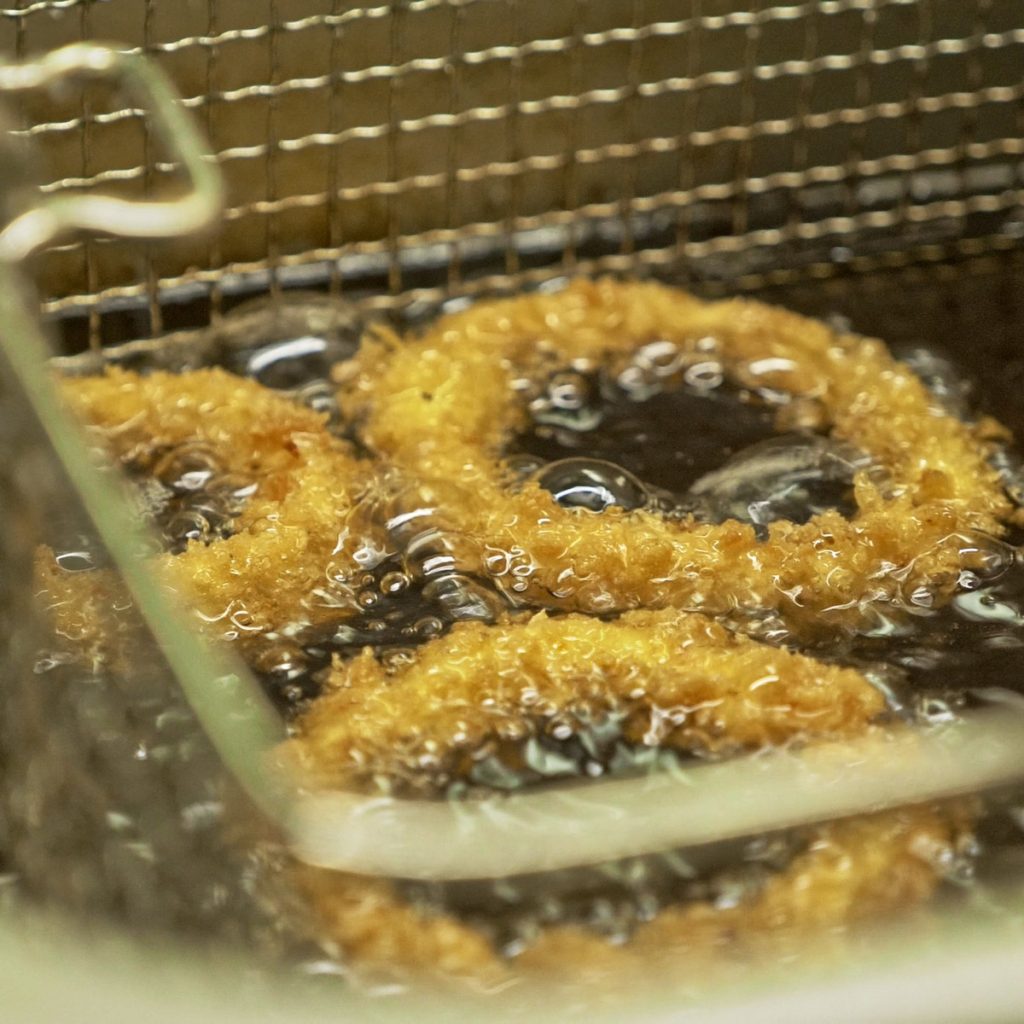
Chef Solutions
Moisture
All the chefs agree that water and oil do not play well together. Chef Alan says, “All foods contain moisture and water will react violently with hot oil, even in small amounts.”
Chef Ricco points out a little more dramatically, “Hot oil or for that matter cold oil and water don’t mix, but hot oil and water, Danger, Danger Will Robinson. ” (a quote from a popular TV show when I was a kid, Lost In Space – rg)
Keep It Dry Suggestions
” It is essential to ensure that your food is as dry as possible,” says Chef Alan. This can be achieved by patting your chicken tenderloins dry with a paper towel. In addition, try to let as much excess egg drain off your chicken as possible before breading it. Then, you only need a small amount on the surface to adhere the bread crumbs to.”
Chef Garrett suggests building a little rack for the chicken tenders and letting them dry for 20 to 30 minutes before frying them.
Keep An Eye On Your Temperature
The chefs agree the type of oil you are frying with and the temperature is critical to successful frying. Although Canola is OK to cook with, it has a very high smoking point of 400 degrees F. Therefore, getting it hot enough to fry something takes more heat. Alternatives are sunflower, safflower & peanut, with lower smoking points.
Chef Alan says, “You don’t need a temperature above 350 degrees F for frying purposes. At a higher temperature, the oil will be more reactive (to water) and an unnecessarily hot pot of oil is a safety concern.”
Chef Ricco also thinks Brenda’s oil may have been old and “one thing for sure, used oil already broken down, isn’t any good. “
Consider the Level of Oil
If too much oil is in the pan and you start adding ingredients, the oil level increases. If the ingredient has any moisture in it at all, you are going to have foaming over.
Chef Alan says, “It should never be more than a third of the way up the pan, mostly for safety reasons.”
Don't Crowd the Pan
Chef Ricco says, “Never crowd the pan. First, you must ensure the oil can cook around the food. Then, you can hold cooked food in the oven at 200 degrees F while you fry the rest of the batch.”
Chef Alan agrees and adds, “Consider if you are only making a small number of tenders, for a family of four of five, there is no need to immerse them in oil completely. Instead, put an inch or slightly more in the wok, cook through on one side, and flip over to complete. This alternative will save you oil (and money!), but there will be much less chance that your oil will foam over.”
Two Important Safty Tips
“Don’t use those spring-loaded tongs to fry with. They are very dangerous.” Chef Ricco says. “If your fingers slip off the tongs while in the hot oil, it’s like a loaded gun of splattering oil.”
Also, if the frying pan catches fire, quickly cover it with a lid and it’s a good idea to always have a full chemical fire extinguisher in the kitchen.
Final Tip from Chef Ricco
When you add salt to food after frying, (french fries, chicken, fish or what ever, do so away from the oil, the salt brakes down the oil fast.

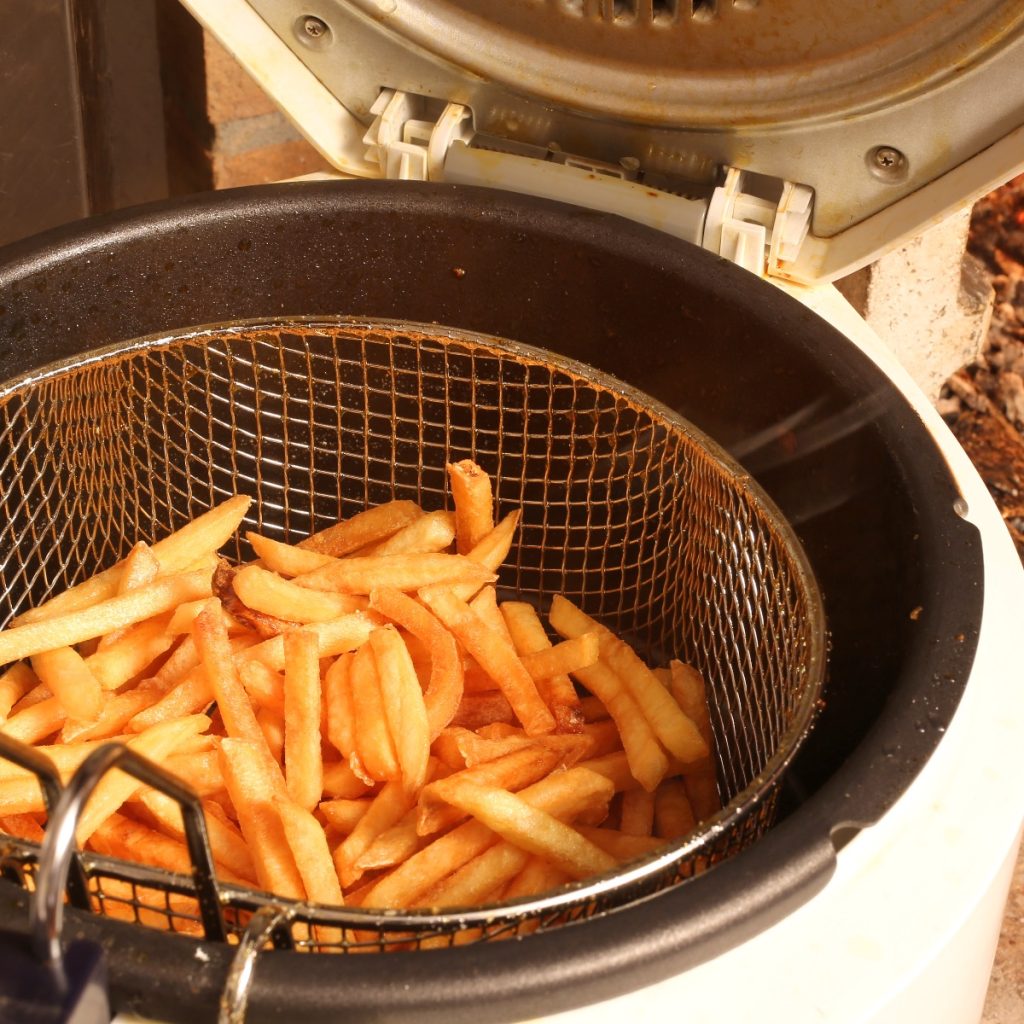
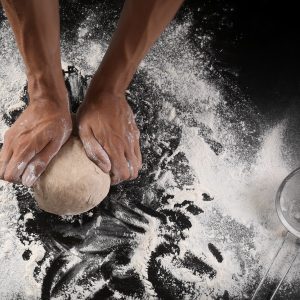
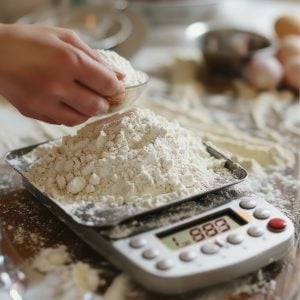

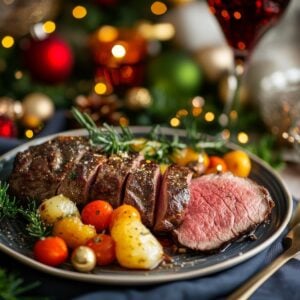
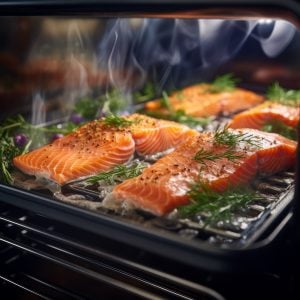
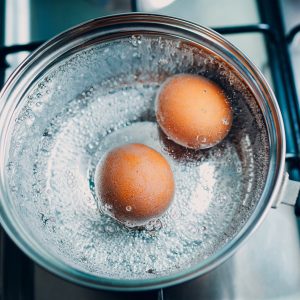

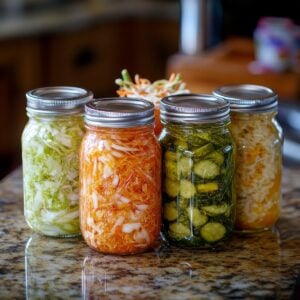
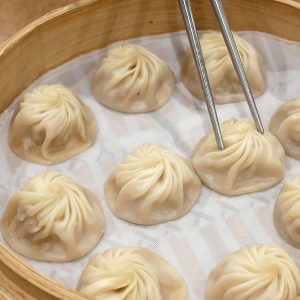


8 Responses
Hey RG, I forgot to mention one very important thing, when you add salt to food after frying, (french fries, chicken, fish or what ever, do so away from the oil, the salt brakes down the oil fast.
frying cube steaks and never had canola oil foam, and don’t like the lingering odor!!! any suggetions?
If canola oil is foaming and leaving an odor, you might try these alternatives for frying cube steaks:
Use a Different Oil – Try oils with higher smoke points and milder odors, such as:
Avocado oil (neutral flavor, high smoke point)
Peanut oil (slightly nutty, high smoke point)
Ghee (clarified butter) (adds a buttery flavor, high smoke point)
Beef tallow (rich flavor, traditional for frying)
Light olive oil (not extra virgin, which has a lower smoke point)
Check Oil Temperature – Overheating oil can cause foaming and off-odors. Aim for 350–375°F for frying.
Avoid Contaminants – Water, food particles, or old oil residue can cause foaming. Make sure your pan and oil are clean before frying.
Use Fresh Oil – Reusing oil too many times can lead to foaming and lingering smells.
Ventilation – Use a range hood, open windows, or turn on a fan to reduce lingering odors.
Please tell me how to keep deep frying oil properly. I know of people who keep the fryer, with oil, out in the garage until the next fry. That does not seem safe at all to me however no one died at my neighbor’s yet.
Hi Terry, great question. We don’t leave the oil in the fryer but we do strain it and put it back into a sealed container and store that in the garage. I’m not sure if this is safe or not but now I’m curious and will do a little research and see what others say. If you have alternative ways for storing the oil, please let me know.
I have exactly the same problem. Just this last year my oil polymerizes after just one batch of anything I cook. I have run into companies that change their processing methods in extreme ways without notice. I believe we should all be complaining to the companies.
I have been making Arancini for years and this is the first time I had a problem. I had corn oil about 2″ deep in my cast iron skillet as usual. Shortly after adding the arancini the oil foamed so high I couldn’t even see the balls and of course overflowed on y cooktop even after I removed it from the burner. I can’t figure out what happened. Now I’m afraid to fry the rest of them. Any suggestions?
Possible Causes:
Moisture Contamination – If your arancini were too wet (from excess filling moisture or condensation from refrigeration), the water content could cause rapid foaming.
Fix: Let them sit at room temp for a bit before frying, and pat them dry with a paper towel if needed.
Old or Contaminated Oil – Used oil with residual starch, breading particles, or water can cause excessive foaming.
Fix: Strain oil between uses or use fresh oil.
Oil Overheating – If the oil got too hot, it might break down and foam.
Fix: Use a thermometer to keep the temp around 350-375°F.
Too Many Arancini at Once – Crowding the pan can cause a rapid temperature drop and excessive bubbling.
Fix: Fry in smaller batches.
Corn Oil Breakdown – Some batches of corn oil might have impurities or be prone to foaming after repeated use.
Fix: Try switching to peanut oil, light olive oil, or vegetable oil, which might be more stable for deep frying.
If you’re worried about frying the rest, you can test a small piece of rice or one arancini first to see if it foams again before committing to a full batch. Let me know if you want alternative cooking methods!